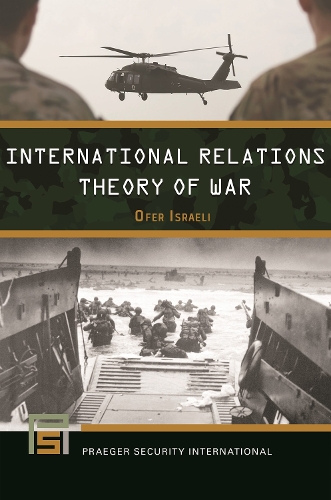
International Relations Theory of War
(Paperback)
Available Formats
Publishing Details
International Relations Theory of War
By (Author) Ofer Israeli
Bloomsbury Publishing USA
Bloomsbury Publishing USA
28th November 2024
United States
Classifications
Tertiary Education
Non Fiction
Warfare and defence
355.0201
Physical Properties
Paperback
248
Width 150mm, Height 229mm, Spine 10mm
380g
Description
Covering 18162016, this book deals extensively with the international system as well as the territorial outcomes of several key wars that were waged during that time period, providing an instructive lesson in diplomatic history and international relations among global powers. Based on an in-depth review of the leading theories in the field of international relations, International Relations Theory of War explains an innovative theory on the international system, developed by the author, that he applies comprehensively to a large number of case studies. The book argues that there is a unipolar system that represents a kind of innovation relative to other systemic theories. It further posits that unipolar systems will be less stable than bipolar systems and more stable than multipolar systems, providing new insights relative to other theories that argue that unipolar systems are the most stable ones. The first chapter is devoted to explaining the manner of action of the two dependent variablessystemic international outcome and intra-systemic international outcome. The second chapter presents the international relations theory of war and its key assumptions. The third chapter precisely defines the distribution of power in the system. The fourth chapter examines the theory's two key phenomena. The fifth and last chapter presents the book's conclusions by examining the theoretical assumptions of the international relations theory of war.
Reviews
In his commendable new book, Ofer Israeli has provided us with a work that is scholarly and reader-friendly, and which makes a valuable contribution to the literature on international relations theory. * Michael Sharnoff, Associate Professor, Daniel Morgan Graduate School of National Security, USA *
Ofer Israeli has written an important book that integrates novel theories in international relations with insightful historical and contemporary analyses. The book makes a significant contribution to the research of international politics. Dr. Israeli shows the relevance of international relations theory for explaining key aspects of war and policy in the global system. This book is highly recommended for all those who are interested in such critical questions. * Benjamin Miller, Professor of International Relations, University of Haifa, Israel *
Israeli has produced a theoretically ambitious and innovative work that constitutes a significant contribution to the realist canon. His inquiry into the effects of the balance of power on war and territorial expansion provides not just a deeper understanding of the past, but also policy-relevant guidance for the conduct of statecraft in a changing and uncertain world. * Charles A. Kupchan, Professor of International Affairs, Georgetown University and Senior Fellow, Council on Foreign Relations, USA *
Author Bio
Ofer Israeli is a lecturer and senior research fellow in the Institute for Policy and Strategy at the Interdisciplinary Center Herzliya and a research fellow at the National Security Studies Center, University of Haifa, Israel.
